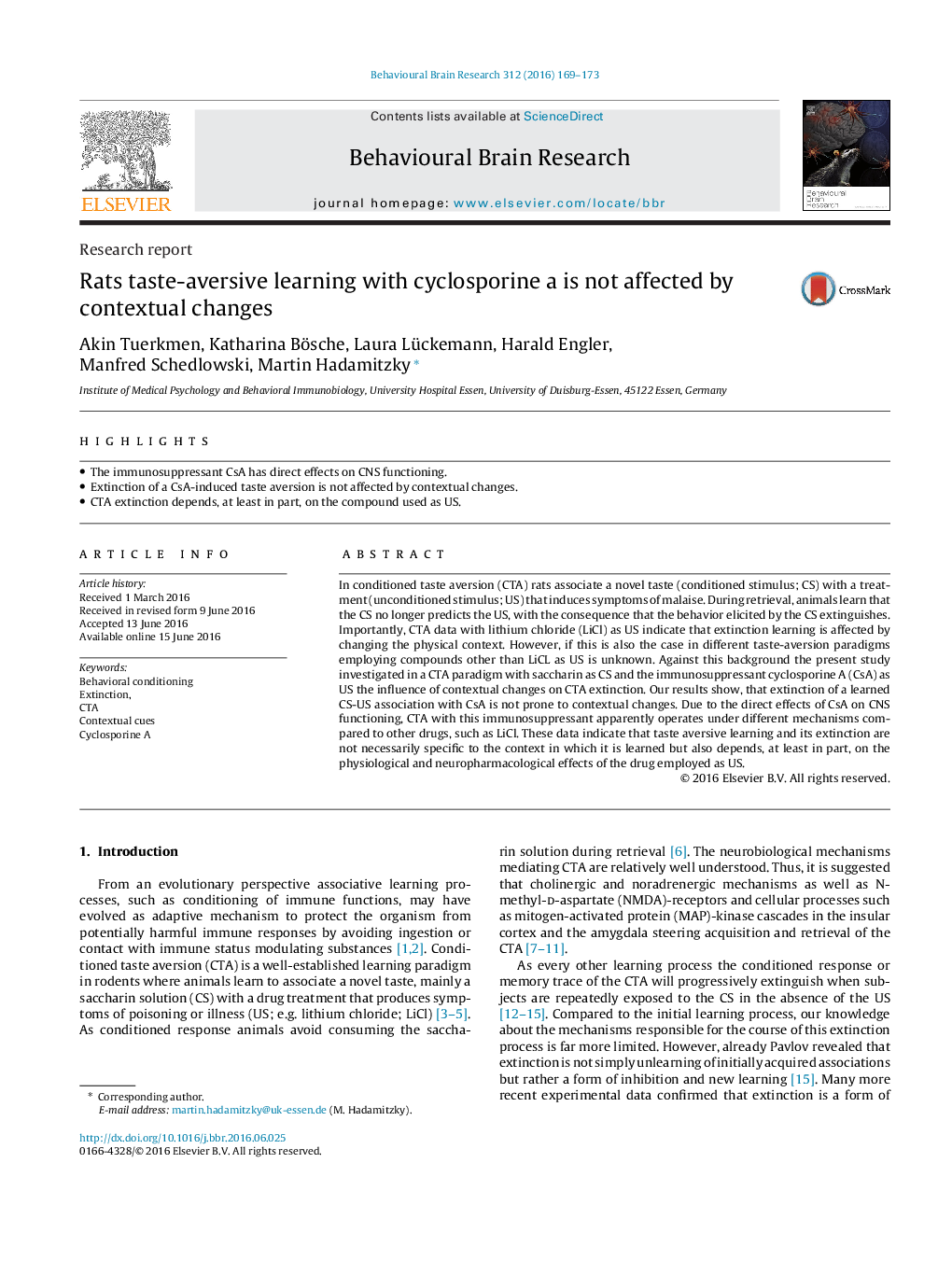| کد مقاله | کد نشریه | سال انتشار | مقاله انگلیسی | نسخه تمام متن |
|---|---|---|---|---|
| 4312067 | 1612921 | 2016 | 5 صفحه PDF | دانلود رایگان |
• The immunosuppressant CsA has direct effects on CNS functioning.
• Extinction of a CsA-induced taste aversion is not affected by contextual changes.
• CTA extinction depends, at least in part, on the compound used as US.
In conditioned taste aversion (CTA) rats associate a novel taste (conditioned stimulus; CS) with a treatment (unconditioned stimulus; US) that induces symptoms of malaise. During retrieval, animals learn that the CS no longer predicts the US, with the consequence that the behavior elicited by the CS extinguishes. Importantly, CTA data with lithium chloride (LiCl) as US indicate that extinction learning is affected by changing the physical context. However, if this is also the case in different taste-aversion paradigms employing compounds other than LiCL as US is unknown. Against this background the present study investigated in a CTA paradigm with saccharin as CS and the immunosuppressant cyclosporine A (CsA) as US the influence of contextual changes on CTA extinction. Our results show, that extinction of a learned CS-US association with CsA is not prone to contextual changes. Due to the direct effects of CsA on CNS functioning, CTA with this immunosuppressant apparently operates under different mechanisms compared to other drugs, such as LiCl. These data indicate that taste aversive learning and its extinction are not necessarily specific to the context in which it is learned but also depends, at least in part, on the physiological and neuropharmacological effects of the drug employed as US.
Journal: Behavioural Brain Research - Volume 312, 1 October 2016, Pages 169–173
